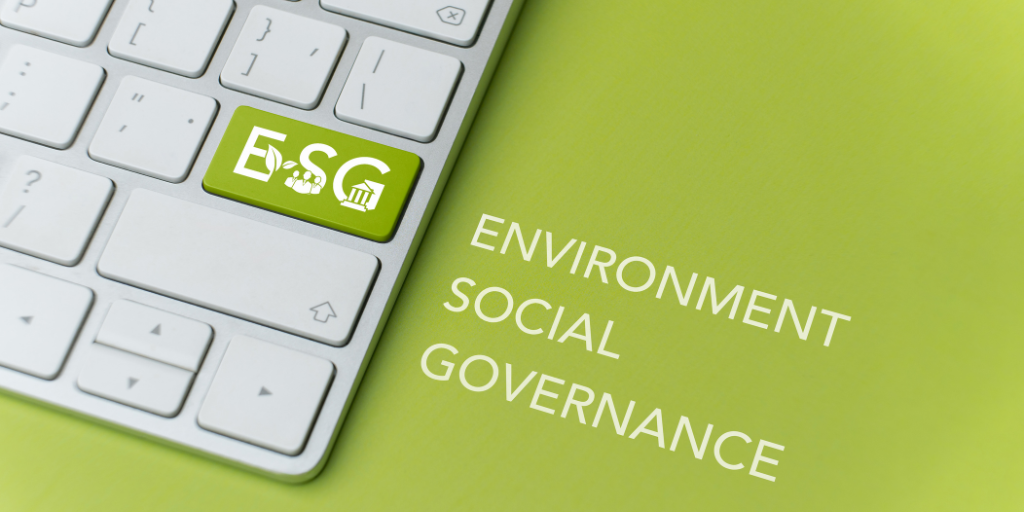
Real-Time ESG: Moving from Annual Reports to Live Sustainability Dashboards
- April 23, 2025
- OHI

The traditional approach to sustainability reporting is rapidly evolving. Gone are the days of waiting for annual reports to understand a company’s commitment to environmental, social, and governance (ESG) practices. Instead, businesses are harnessing the power of real-time data through dynamic sustainability dashboards. This shift not only enhances transparency but also drives growth and fosters resilience in an ever-changing market landscape. As we dive into this essential transformation, discover how embracing these innovative ESG Sustainability Services can position your organization as a leader in sustainable business practices.

The transition from annual reports to live sustainability dashboards marks a significant shift in how companies communicate their ESG efforts. Real-time data allows stakeholders to access current information, making transparency more achievable than ever.
These dashboards enable businesses to monitor their environmental impact continuously and respond swiftly to emerging challenges. By leveraging technology, organizations can engage with audiences dynamically and showcase their commitment to sustainable practices effectively.
Sustainability is no longer just a buzzword; it’s a powerful driver of growth. Companies that prioritize eco-friendly practices often see improved brand loyalty and customer engagement, leading to increased revenue.
Additionally, sustainable operations can reduce costs associated with waste and energy consumption. By adopting these strategies, businesses not only protect their value but also position themselves as leaders in an evolving market focused on environmental responsibility.

Leading firms are adapting to market pressures by integrating real-time ESG sustainability services into their operations. This proactive approach enables them to respond swiftly to shifting consumer expectations and regulatory demands.
By leveraging innovative technologies, companies can track sustainability metrics effectively. They not only enhance transparency but also build trust with stakeholders, positioning themselves as industry leaders in sustainable practices amidst growing competitive challenges.
The transition from traditional annual reporting to real-time sustainability dashboards marks a significant evolution in ESG practices. Organizations can now visualize their environmental impact continuously, allowing for timely adjustments and interventions.
These dynamic tools empower stakeholders with immediate insights into performance metrics. By leveraging data analytics, companies are better positioned to respond proactively to emerging challenges and opportunities related to sustainability.
Embracing sustainability is no longer a choice; it’s a necessity for future competitiveness. Companies that integrate sustainable practices can differentiate themselves in crowded markets.
This shift not only meets consumer demand but also attracts talent who value corporate responsibility. Organizations committed to sustainability often experience enhanced brand loyalty and reputation, propelling them ahead of competitors stuck in outdated models.

Companies are discovering new pathways by integrating sustainability into their core strategies. This approach not only addresses environmental goals but also drives innovation and efficiency.
By reinventing traditional practices, businesses can unlock opportunities that resonate with conscious consumers. Embracing sustainable methods fosters a culture of responsibility and creativity, positioning firms for long-term success in an evolving marketplace.
Decarbonization is no longer just a goal; it’s an essential business strategy. Companies are adopting innovative practices that lead to measurable carbon reductions. This shift creates a clear path toward achieving net-zero targets.
By investing in renewable energy and optimizing operations, organizations can drive real outcomes. These efforts not only benefit the planet but also enhance brand reputation and attract eco-conscious consumers.
Embedding sustainability into value chains transforms how businesses operate. It requires a commitment to ethical sourcing, energy efficiency, and waste reduction at every stage of production.
By integrating sustainable practices, companies can enhance brand reputation and drive innovation. This approach not only meets consumer demand for responsible products but also fosters long-term resilience in an ever-changing market landscape.

Transitioning to sustainable behaviors requires a mindset shift. Organizations must cultivate an environment where sustainability is valued and prioritized at every level.
Employees should be encouraged to adopt eco-friendly practices both in the workplace and at home. This can lead to increased engagement, ownership, and ultimately drive meaningful change toward long-term sustainability goals. It’s about making green choices part of everyday life.
Technology plays a pivotal role in advancing sustainability efforts. Innovative solutions like IoT sensors and AI analytics enable companies to monitor resource usage in real time, optimizing efficiency.
Moreover, blockchain technology enhances transparency in supply chains, ensuring ethical sourcing and reducing waste. By embracing these digital tools, organizations can revolutionize their operations while making significant strides toward environmental responsibility.
Aligning governance with sustainability practices is crucial for long-term success. Companies must integrate eco-conscious values into their decision-making processes to create a culture that prioritizes environmental responsibility.
When leadership demonstrates commitment to sustainability, it influences employee behavior and stakeholder expectations. This alignment fosters an organizational culture where sustainable choices are valued, driving collective efforts toward impactful results in ESG initiatives.
Companies increasingly receive accolades for their sustainability efforts. Recognitions range from industry awards to certifications that highlight eco-friendly practices. These achievements enhance a firm’s reputation and attract socially conscious investors.
Many organizations celebrate milestones such as reduced carbon footprints or significant waste management improvements. Such accomplishments not only reflect commitment but also inspire others in the sector to prioritize sustainable initiatives within their business strategies.

Industry leaders in sustainability are setting the benchmark for responsible business practices. Their innovative approaches to ESG encourage others to follow suit, showcasing that profitability and environmental responsibility can coexist.
Companies like Unilever and Tesla exemplify how integrating sustainable strategies can drive growth. By prioritizing transparency and accountability, they inspire a shift toward more ethical operations across various sectors.
Connecting with experts and leaders in sustainability opens doors to invaluable insights. Engaging with thought leaders can inspire innovative approaches tailored to your organization’s specific needs.
Participating in forums, webinars, and workshops creates opportunities for collaboration. Building these relationships fosters a community dedicated to advancing ESG sustainability services, enhancing both knowledge and implementation strategies across industries.
Real-time ESG challenges require immediate attention. Companies must adapt quickly to changing regulations and stakeholder expectations. Monitoring data in real-time allows businesses to identify issues before they escalate.
Utilizing advanced analytics can enhance decision-making processes, ensuring that organizations remain compliant while also addressing sustainability goals. By staying proactive, companies can navigate complexities more effectively and maintain a competitive edge in the evolving market landscape.

Sustainability isn’t just a trend; it’s reshaping business practices. Companies integrating sustainable strategies often see improved efficiency and cost savings. By reducing waste and optimizing resources, they enhance their bottom line.
Moreover, adopting sustainable practices fosters innovation. Teams become more engaged when working towards environmental goals. This alignment not only boosts morale but also attracts like-minded consumers who value responsibility in their purchasing decisions.
Staying updated on ESG trends and regulations is crucial for businesses today. With the landscape constantly evolving, awareness can shape a company’s strategy and operational approach.
Regulatory changes often come fast and unexpectedly. Engaging with industry publications, attending webinars, or participating in forums can provide valuable insights to navigate these shifts effectively. This knowledge enhances compliance while also driving sustainability initiatives forward.
Engaging stakeholders is crucial for the success of sustainable strategies. By actively involving employees, customers, and investors, companies can align their sustainability goals with stakeholder interests. This collaboration fosters a sense of shared purpose.
Transparent communication enhances trust and commitment among all parties. Regular updates on progress and challenges ensure that everyone stays informed and motivated to contribute to sustainability initiatives.
Navigating ESG compliance and reporting requirements can be complex. Companies must stay informed about evolving regulations that affect their sustainability practices.
Understanding these requirements helps organizations not only to avoid penalties but also to enhance their credibility. Transparent reporting fosters trust among stakeholders, making it essential for businesses aiming for long-term success in a competitive landscape driven by sustainability initiatives.

Starting sustainability initiatives requires a clear vision and commitment. Organizations must identify specific goals that align with their values, ensuring everyone is on board.
Gathering a diverse team can enhance creativity and drive. Engaging employees at all levels fosters ownership and enthusiasm, paving the way for innovative solutions to environmental challenges. Together, they can make meaningful strides toward sustainable practices.
California’s commitment to sustainability presents unique opportunities for businesses. With the state leading in carbon neutrality goals, organizations can align with regulations and enhance their reputations.
The SEC’s new carbon reporting requirements further emphasize transparency. Companies that embrace these mandates can demonstrate accountability and gain investor trust, positioning themselves as leaders in ESG sustainability services while driving innovation and growth.
ESG professionals offer valuable insights into the evolving landscape of sustainability. Their expertise helps organizations understand complex regulations and best practices, ensuring compliance while driving meaningful change.
These experts emphasize the importance of real-time data for transparency and accountability. They advocate for integrating ESG strategies into core business operations to enhance resilience and foster long-term growth in an increasingly competitive market.

Profiles of ESG and sustainability leaders shine a light on those paving the way for responsible business practices. These individuals not only champion sustainable initiatives but also inspire others to follow suit. Their commitment drives innovation, fosters collaboration, and creates lasting change across industries.
Through their work, they demonstrate that sustainability is not just a trend; it’s essential for long-term success. By sharing insights and experiences, these leaders help organizations navigate the complexities of ESG Sustainability Services effectively.
As we look toward the future, their influence will shape how businesses approach environmental responsibility and social governance. Engaging with these pioneers opens up new pathways for companies eager to enhance their sustainability efforts while achieving strategic goals.
Contact us for a customized NO OBLIGATION proposal for outsourcing your accounting activities.







